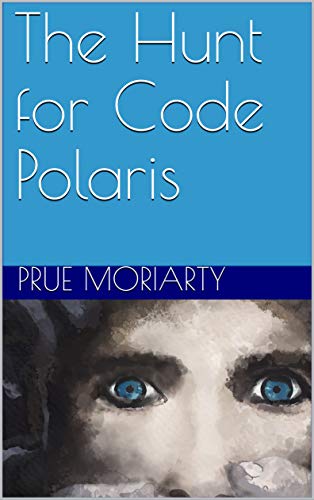Case Study – Prue Moriarty: Advising on Copyright and Defamation in a Fictional Novel

Arts Law was approached by Prue Moriarty, an author, who was seeking advice about her novel, The Hunt for Code Polaris, which is a psychological thriller about espionage during the Cold War. Specifically, Prue sought advice on how she could protect the copyright in her novel and avoid defamation risks in circumstances where her fictional story included references to real events, locations and people.
Arts Law Solicitor, Daniel Roe, advised Prue that as the author and self-publisher she will own copyright in her novel as a literary work which will give her the exclusive rights to:
- Reproduce the work in a material form (e.g. makes copies of the work, reciting onto audio tape);
- Be the first person to publish the work (e.g. make copies of the material available to the public for the first time);
- Perform the work to the public (e.g. reciting the work in a public forum);
- Communicate the work to the public (e.g. make a copy of the manuscript available online); and
- Adapt the work (e.g. make the novel into a script for a film).
Daniel explained that if someone used any of these exclusive rights in respect of the novel without Prue’s permission, and it wasn’t a fair dealing, then she would be able to enforce her copyright to protect her work. Daniel also advised Prue on her moral rights, which include Prue’s right to be credited as the author of the book, her right to prevent her work from being falsely credited, and her right to ensure that her work is not materially altered or treated in certain ways without her permission.
With respect to the potential risks of referring to real and historical places, people and events, Daniel advised Prue about defamation law and suggested some practical options for reducing these risks.
Specifically, in Australia defamation law protects the reputation of an individual and that person needs to be identified in the publication either directly or through the disclosure of certain facts that point to that person. A possible way to remove the risk is to use pseudonyms. Daniel also advised that generally someone can only be defamed if they are alive.
Furthermore, for someone to prove that they have been defamed they need to show that there has been damage to their reputation. To reduce this risk, Daniel also discussed the use and appropriate wording for a disclaimer to make it clear to the reader that whilst Prue’s book may draw inspiration from historical places, people and events, the story is a work of fiction.
Following her call with Daniel, Prue received further legal advice from one of Arts Law’s pro bono lawyers about the legalities of using a pen name and the appropriateness of obtaining a trademark for the title of her novel.
Based on the advice Prue reviewed and amended several parts of her manuscript. Prue even contacted the owners of a café in Germany to ask for permission to use the café as a featured location in her story. After reviewing extracts from the book, the café‘s owners were thrilled to be included and approved the use of the café’s name and details for the book.
It was very rewarding for Arts Law to hear that as a result of receiving this advice, Prue felt empowered to take the next step of publishing her material.
“My experience with Arts Law was outstanding, the advice that I received was invaluable. I had spent 4 years working on my novel, but I would not have published without the advice because I was concerned about stepping into a legal minefield and this was holding me back.
The lawyers I dealt with were really friendly, approachable and professional. They provided me with useful practical steps that I could take to address the issues I was concerned about. Based on the advice I received I felt confident and in control to publish my book which I am really pleased with.
If I didn’t have this advice, I wouldn’t have published my book. Now, not only is it published, but I am working on a sequel.”
This is a great example of how Arts Law’s advice has given an author an understanding of the legal issues affecting their practice and provided them with practical options to allow them to pursue their creative endeavours with confidence. Arts Law is here to provide legal advice, not just for copyright concerns but for a wide range of other legal queries relating to an artist’s practice.
The Hunt for Code Polaris can be purchased from:
Amazon Australia here
Further resources you might find useful:
- Copyright https://www.artslaw.com.au/info-sheets/info-sheet/copyright/
- Copyright Infringement: https://www.artslaw.com.au/info-sheets/info-sheet/copyright-infringement/
- Moral Rights: https://www.artslaw.com.au/info-sheets/info-sheet/moral-rights/
- Moral Rights Infringement: https://www.artslaw.com.au/info-sheets/info-sheet/moral-rights-infringement-letter-of-demand-explanation/
- Protecting your idea: https://www.artslaw.com.au/info-sheets/info-sheet/protecting-your-ideas/
- Defamation: https://www.artslaw.com.au/info-sheets/info-sheet/defamation-law/
For further information, or to talk to one of our solicitors, click to access our legal query form.




